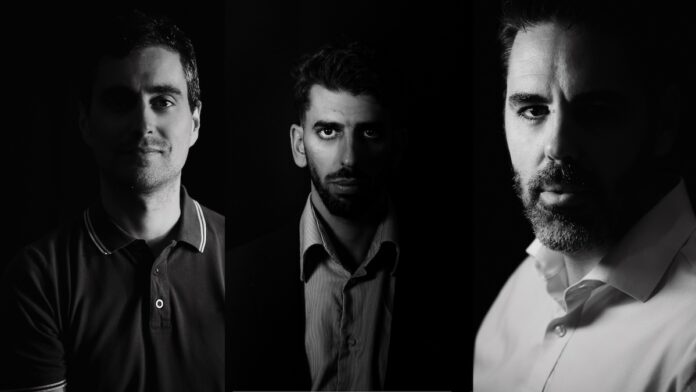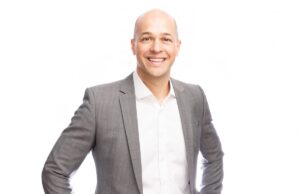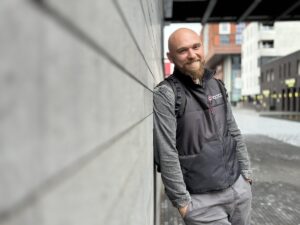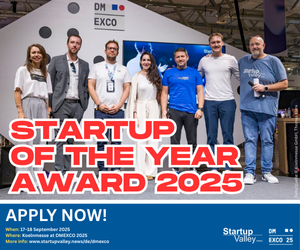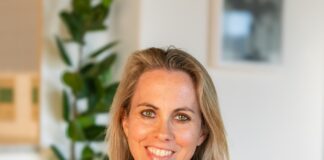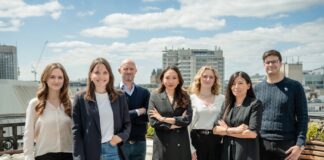QuoIntelligence is a finalist for Startup of the Year of November 2024 from the Frankfurt Forward Awards
Why don’t you briefly introduce yourself and your startupQuoIntelligence to our readers?
I’m Marco Riccardi and I have been in the intelligence and cybersercurity field for almost 20 years. I started my career by voluntarily joining the Italian military and serving in the PSYOP Army Regiment and I have since worked for multiple private and government bodies including some of the most influential financial institutions in Germany and Spain. My roles spanned from working as e-Crime Analyst, eCrime R&D, SOC analyst, Incident Responder, Digital Forensic investigator and finally as Cyber Threat Intelligence analyst where I finally found my perfect landing zone.
In 2020 I founded QuoIntelligence, to inform decision-makers of current and potential cyber and geopolitical threats by providing them with customized Finished Intelligence reports.
Why did you decide to found QuoIntelligence?
I grew up in a family running a small family-business, I always knew that sooner or later I’d have created something mine in the tech space. After years operating in the market and seeing only a limited amount of non-EU players who just catered to large enterprises, I met someone (my first investor Ari Bizimis from Mercurius PE) who understood this market opportunity and invested in my idea. It wasn’t really a “decision”, it was kind of natural process to be honest.
What is the vision behind QuoIntelligence?
Our vision is to become Europe’s Threat Intelligence company, democratizing the benefits of threat intelligence by making it accessible also to hundreds of medium sized companies in the EU and beyond.
From the idea to the launch, what have been the biggest challenges so far and how have you financed yourself?
We are extremely grateful to have had the backing of Ari Bizimis (Mercurius Private Equity) since day 1. Ari is a former entrepreneur himself, with a large network in the Rhein Main area and beyond, who understands our challenges and believes in our mission. We founded the company in January 2020, so you might guess what our first big challenge was: covid and all its implications. Creating and operating a full-remote and cross-national startup is not an easy thing to start with, but we were able to make it an advantage versus our competition. Other challenges are the same faced by other startups in our stage: growing & scaling in this “new” market.
Who is the target group of QuoIntelligence?
We segment the market based on company maturity in terms of Cyber Security and their size, and we have a specific offering for each segment.
Generally speaking, the following are normally our “entry criterias”
- European companies
- Companies starting from 500 employees
- Companies having at least one dedicated FTE in cyber security
How does your start-up work? What are the advantages?
We are a fully remote business, that operates within the boundaries of the European Union from 3 legal entities (Germany, Spain, Italy). This allows us to partner with our European customers in their own language, living and breathing their threat landscape inside out. We have been able to source incredible talent who produced great research, products and features that already allow us to offer services to mid-sized companies that were out of budget before.
The fundamental objective of Threat Intelligence is to detect well in advance any potential threat against the organisation. No matter what protection measures your company has in place, you need to know what threats you are facing, otherwise you’ll be blindly weathering the storm. That’s the information CTI provides – anything that can give you an edge in defending yourself. What do they know about your organisation? What’s happening in the world? What’s going on in your supply chain? We are the private intelligence agency everyone would love to have, looking for anything happens “out there” that could impact company’s risk exposure, from both a cyber and physical point of view.
You are a finalist for Startup of the Year. What happens now?
We are very excited about the final in November, and hope to show up with a great track record for 2024 already.
Where are you heading? Where do you see yourself in five years?
In 5 years we should already hold a dominant position in the European market, with customers also outside of Europe already. By then we will consolidate our SaaS product Mercury: our Generative and Predictive AI Threat Analytic Platform, that can be used by a multitude of users to predict and reduce the risk of imminent cyber/physical threats in an effortless way. In terms of numbers, 150+ customers and 25M+ ARR should be our minimum goal then.
Finally: What 3 tips would you give to aspiring founders?
A great company starts with great people, finding the right ones from the beginning is key.
Personally, I’m a fan of “Do it first”. Before founding a company, you should have proven to be a top subject matter expert, and you should have a perfect idea of what are the pain points of the audience you’ll be addressing. You need to know perfectly what it means to develop software, to follow a leader, to be always available to your teammates, to lead a team, to painfully get through a project at any cost, to listen and serve a customer in the best way possible, and more. I’m sure there are successful founders that skipped all those steps, but I’m also sure those are vast minority of the entire dataset. And no, an MBA won’t short-cut you from such a long on-field journey (although it surely can help).
Expect pain. Lots of pain. There is no easy and painless way to create and run a successful startup. You need to accept you’ll go through the most painful professional experience you’ve ever had. Ensure you’re well aware of this and the risks associated with it, and ensure the people around you (family, partners, etc) are also aware too. Hopefully, the experience and the success you and your team will get from it will overcompensate the pain, but never forget that the probability is extremely low. Recommended reading to start with: “The Hard Thing about the Hard Things” from Ben Horowitz
Picture@ @ivegenia möbius
Thank you Marco Riccardi for the Interview
Statements of the author and the interviewee do not necessarily represent the editors and the publisher opinion again.


